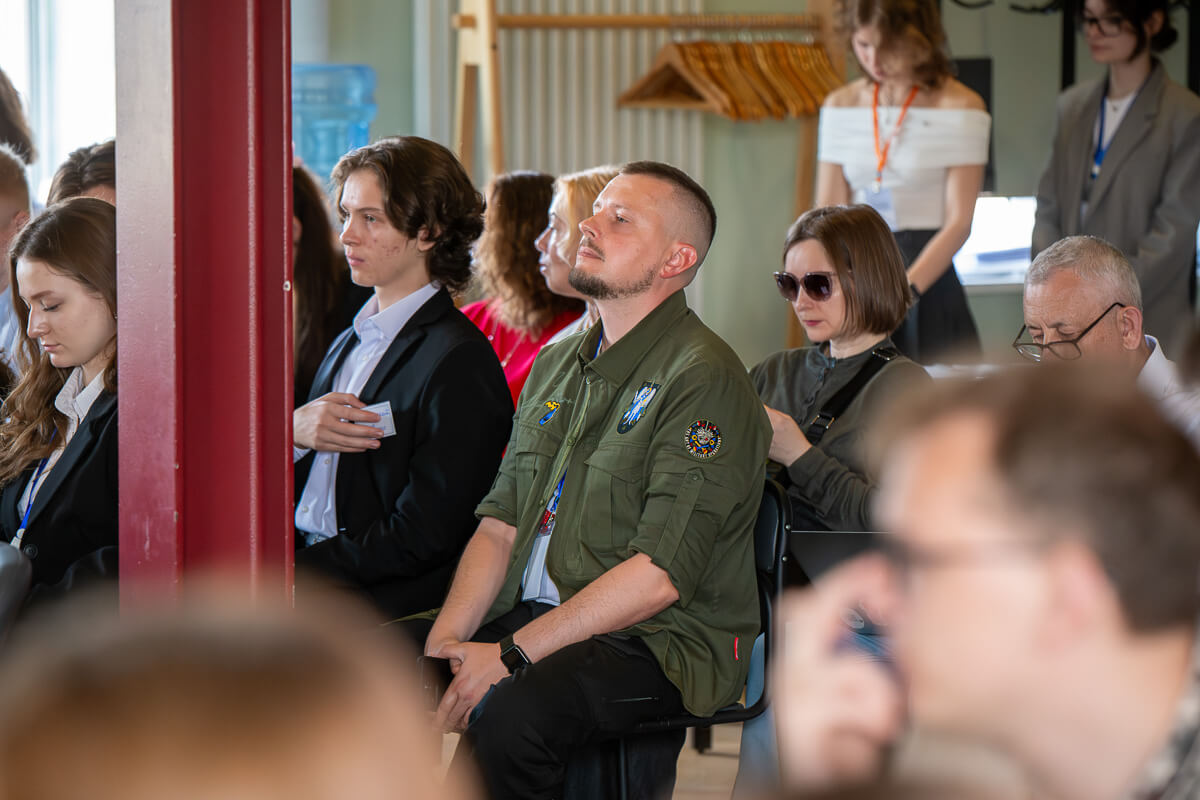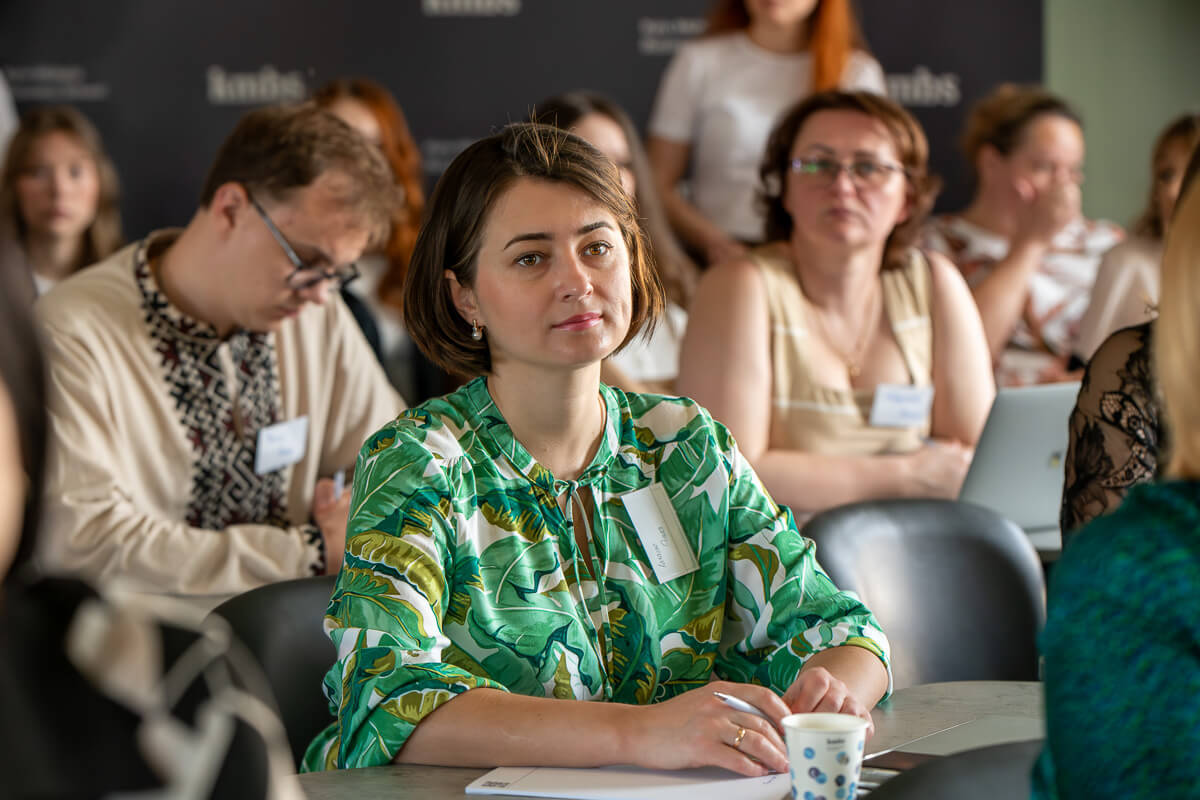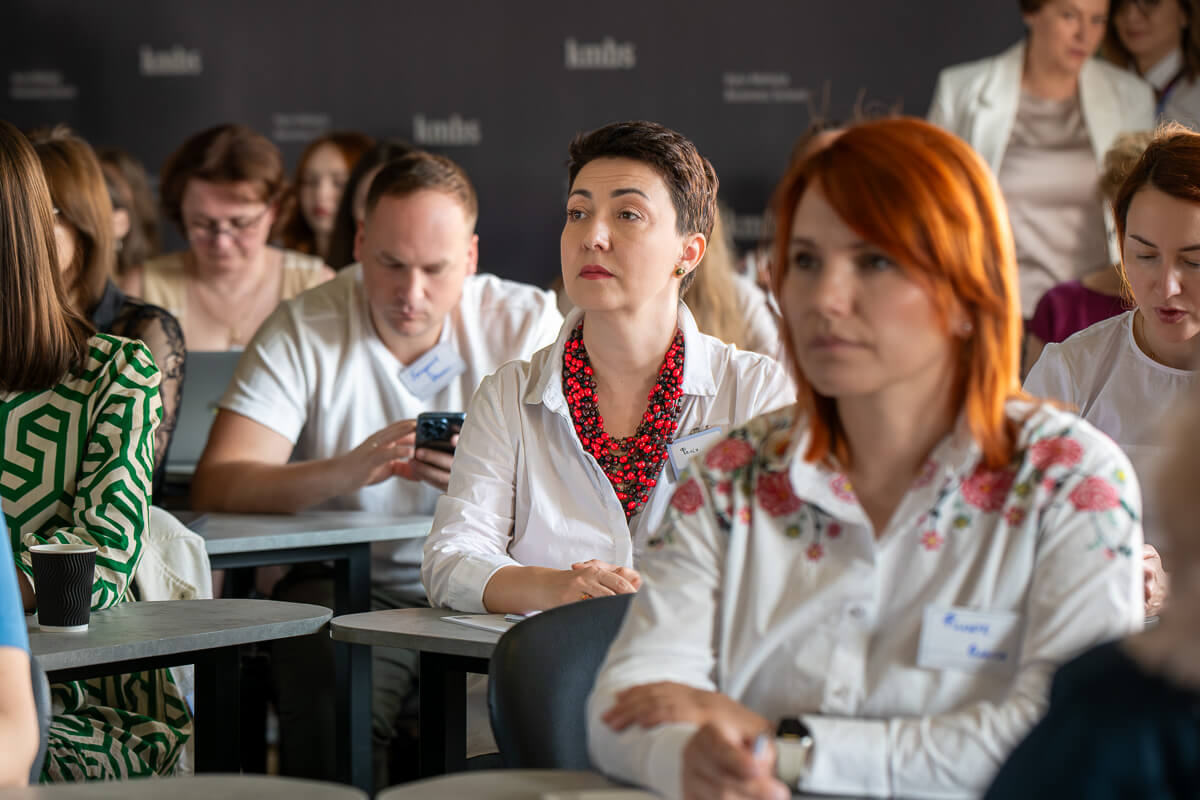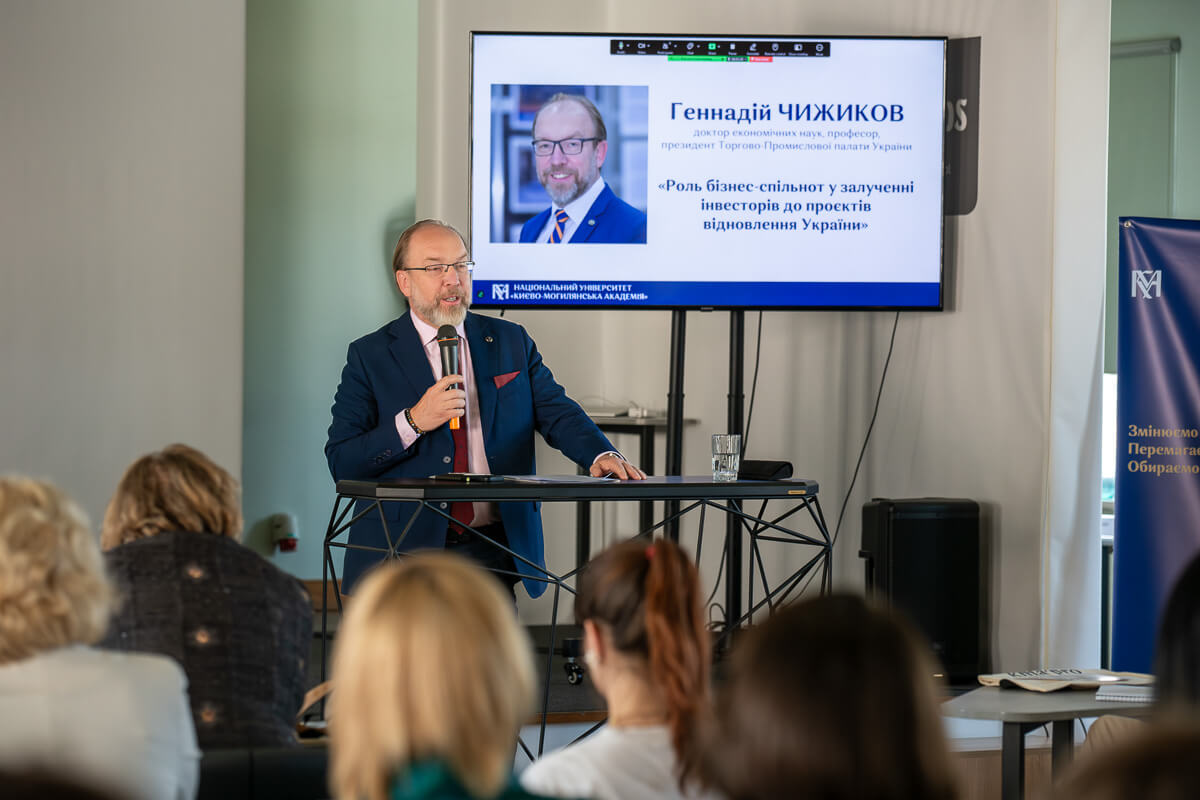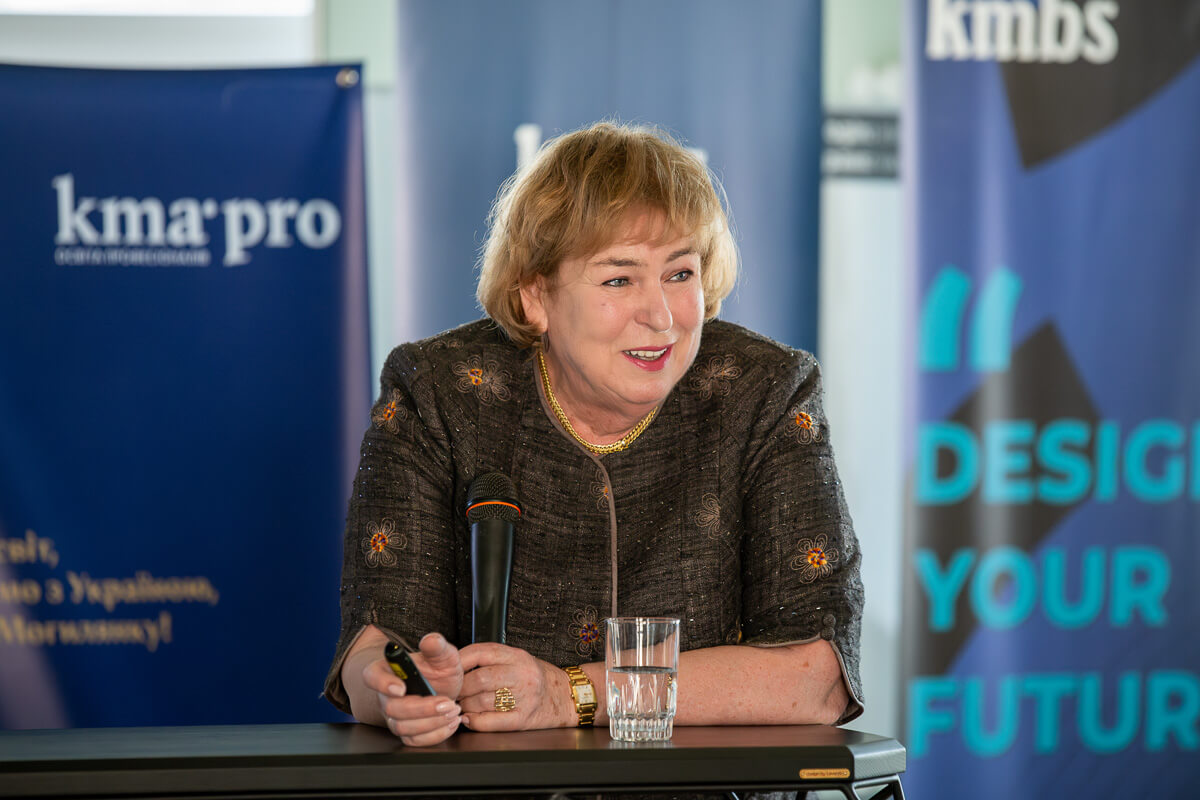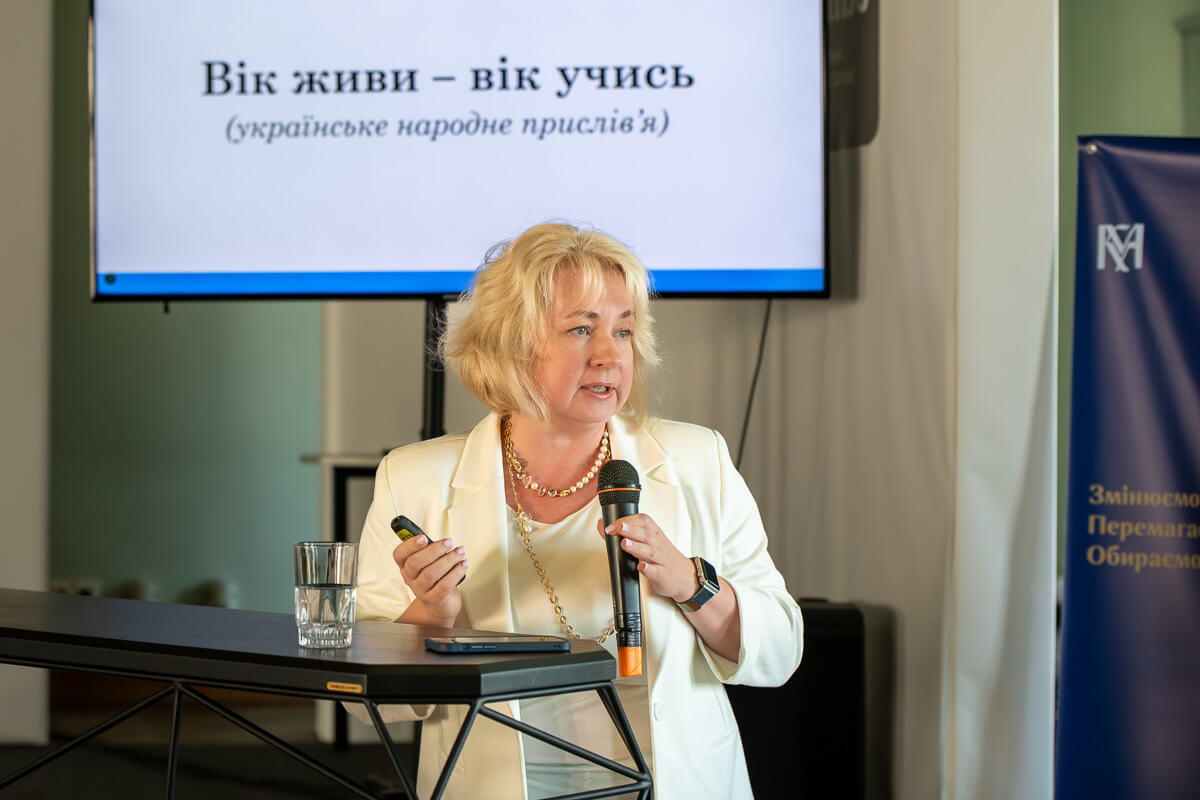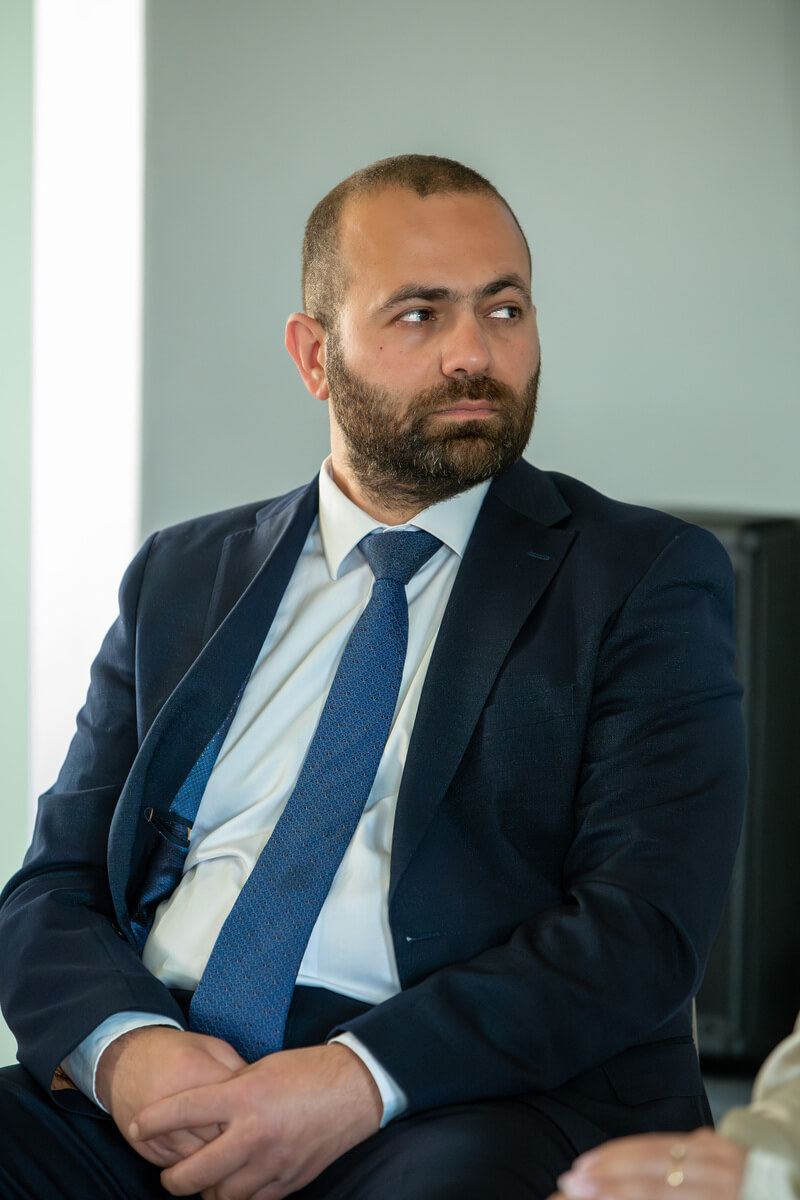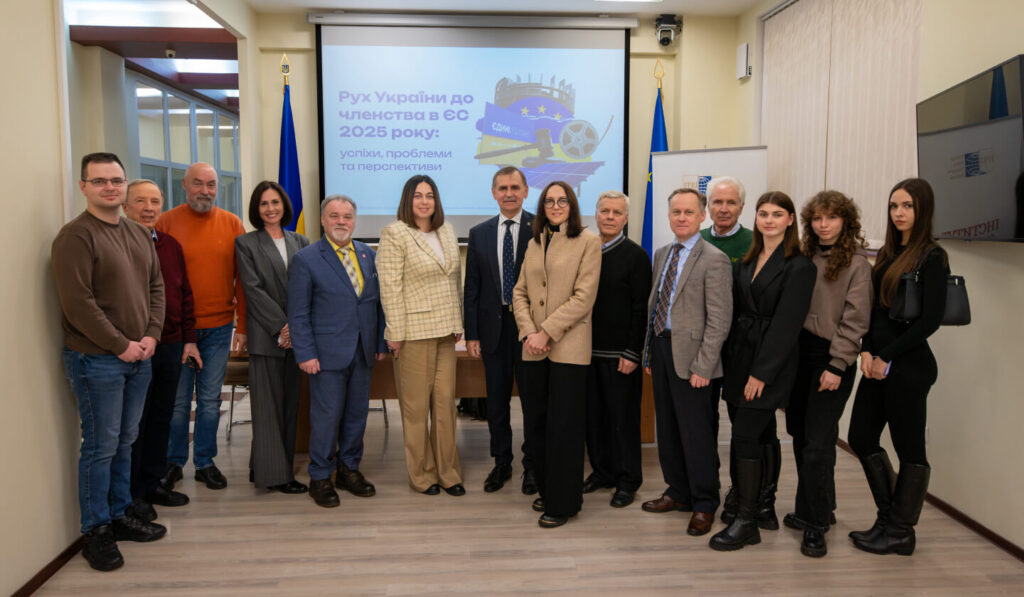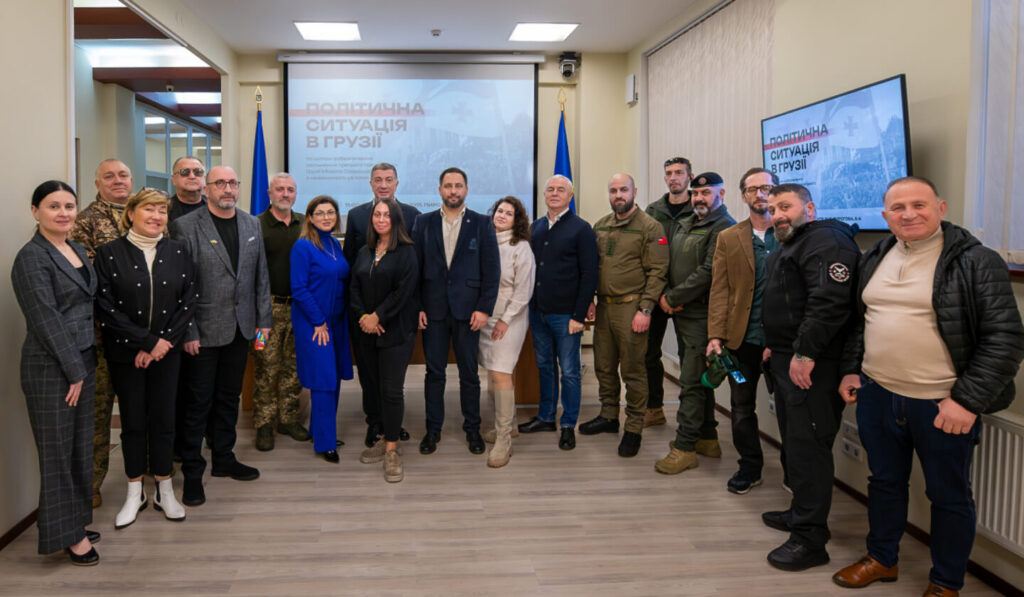On Thursday, 5 June 2025, the National University of Kyiv-Mohyla Academy hosted the International Scientific and Practical Conference ‘Interdisciplinary Expertise for the Recovery and Development of Ukraine’.
The event was organised by the Kyiv-Mohyla School of Professional and Continuing Education of the National University of Kyiv-Mohyla Academy jointly with the Ministry of Education and Science of Ukraine, National Agency for Higher Education Quality Assurance, National University of Kyiv-Mohyla Academy, Institute of Political Science and International Relations of the Jagiellonian University in Kraków, Center for East European Studies of the Warsaw University, Institute for Demography and Social Studies of the National Academy of Sciences of Ukraine with the organisational support of the Directorate-General for Rendering Services to Diplomatic Missions.
The conference brought together online and offline experts to discuss the role of education, science and effective governance in the country’s recovery and transformation, and served as a platform for professional discussion and exchange of ideas on interdisciplinary solutions in the process of Ukraine’s reconstruction and development.
The event began with welcoming remarks by Serhii Kvit, Doctor of Philology, Professor, President of the National University of Kyiv-Mohyla Academy, and Piotr Bajor, Doctor of Political Science, Professor, Dean of the Institute of Political Science and International Relations of the Jagiellonian University in Kraków.
In his welcoming speech, Serhii Kvit emphasised an important aspect, which is the restoration involving all state resources, with a particular focus on the development of Ukraine’s territorial communities,
‘We need to focus on the needs of territorial communities. This means restoring ties, building new ones, adapting conditions for our veterans, and helping citizens at various levels. The list of tasks is very long. I am confident that today’s conference will help us understand all these issues, and I urge you to actively exchange ideas.’

In turn, Piotr Bajor thanked the co-organisers for holding this important event, which serves as an excellent communication platform for the exchange of information and the dissemination of participants’ experiences:
‘This conference is extremely important for several reasons. Firstly, it is an important venue for scientific discussions and the presentation of research results on the restoration and development of Ukraine, as well as various processes in this field, analysed from an interdisciplinary perspective. Therefore, I would like to thank all of you for deciding to present your work and research results and share your experience during this conference, as well as jointly discuss extremely relevant issues related to the consequences of the ongoing war. I am also convinced that this conference will become a platform for new ideas and joint work and, as a result, new joint initiatives between our universities, projects and publications will be implemented.’
The welcoming speeches were followed by a plenary session, featuring the reports by Hennadii Chyzhykov, Doctor of Economics, Professor, President of the Ukrainian Chamber of Commerce and Industry, Ella Libanova, Doctor of Economics, Professor, Director of the Ptoukha Institute for Demography and Social Studies of the National Academy of Sciences of Ukraine, and Nataliia Stukalo, Doctor of Economics, Professor, Deputy Head of the National Agency for Higher Education Quality Assurance.
After the plenary session, participants continued their discussions with speakers during panel discussions on ‘Diplomatic practices for Ukraine’s recovery and development,’ ‘Governance policies: Open dialogue between society and the state,’ ‘Educational management for Ukraine’s development,’ and ‘Cross-sectoral economic recovery of Ukraine.’
The discussion panel ‘Diplomatic practices for Ukraine’s recovery and development’ was opened with welcoming speeches by the Ambassador Extraordinary and Plenipotentiary, Minister for Foreign Affairs of Ukraine (2007–9), Volodymyr Ohryzko, and the Head of the Division for the Economic and Trade Coordination of Ukraine’s Diplomatic Missions Abroad at the Department of Economic Diplomacy of the MFA of Ukraine, Nataliia Zhynkina.
The Deputy Head of the Embassy of the Republic of Azerbaijan in Ukraine, Sabir Rzayev, Vice-President for Scientific and Educational Studies, PhD in Philology, Associate Professor of the Volodymyr Morenets Department of Literary Studies of the National University of Kyiv-Mohyla Academy, Olha Poliukhovych, and the Ambassador Extraordinary and Plenipotentiary of Ukraine to the Tunisian Republic and the State of Libya concurrently, Volodymyr Khomanets, participated in the panel discussion.
The event concluded with workshops on ‘Fundraising for recovery’, ‘Inclusive policies and work with veterans’, ‘Designing interdisciplinary educational programmes’, ‘Youth leadership in Ukraine’s recovery’, and a summary of the event.

